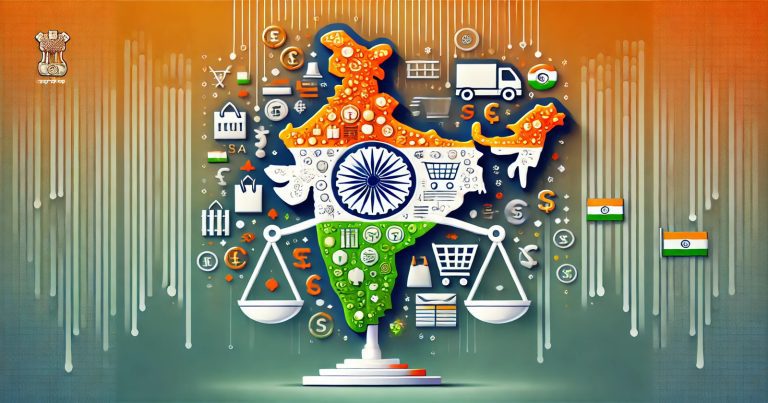Consumer awareness in India teaches people what their rights are and what responsibility they hold after purchasing any commodity or service. It teaches one how to be innovative while making decisions, notice unfair trade practices, and what to do next. In other words, consumer awareness in India makes sure no one can dupe or deceive the buyer. It teaches one about laws to protect them, what rights one possesses, and ways to get justice if something is wrong. This article elaborates on what consumer awareness is in India, why it matters, and how it helps each one in the country.
What is Consumer Awareness?
Consumer awareness involves knowing your rights as a customer. It informs you of proper decisions while acquiring goods or services. A proper consumer is informed about checking product information, comparing prices, authenticating authenticity, and product safety. Now, consumer awareness in India is a must due to the great variety of market products and a lack of practice of fair conduct by all retailers.
People can identify fraud, avoid cheating, and demand better services when they know their rights. For instance, if a person buys a phone that stops working within a few days, they should know they have the right to return it or get a replacement. This knowledge comes from consumer awareness.
In India, consumer awareness has increased due to education, government programs, and consumer awareness campaigns. These campaigns teach people about their rights and how to handle problems with products or services. Schools also include consumer awareness in India projects to help students learn from a young age. Knowing your rights will protect you from fake products, inadequate services, and unfair deals. It makes you a wise buyer who can demand quality and fairness.
Need For Consumer Awareness in India
Consumer awareness is required in India because the marketplace is full of risk. With the economy, people face challenges like fraud net, misleading advertisements, low-quality goods, and unfair prices. Many businesses may attempt to exploit consumer’s unawareness.
Reason Why Consumer Awareness is Essential?
Save the individual from fraud.
The benefits of consumer awareness include protection against scams, imitation products, and fraudulent vendors. Understanding product details about actual certifications and law protections can simplify fraud detection. For example, being conscious of the MRP helps check overcharging.
Promotes Fair Trade
When consumers know their rights, companies must maintain honest practices to keep their customers. This leads to a fair market where businesses compete based on quality rather than tricks. Fair competition also encourages better prices for consumers.
Ensures Quality Products
Informed consumers with greater expectations raise the quality bar for businesses. Companies are compelled to match expectations if people refuse to buy inferior products. This, in turn, produces safer and more reliable products in the market.
Fights Unfair Practices
Aware consumers can complain about false advertisements, secret charges, or defective goods. They may take legal action through consumer courts, guaranteeing justice and deterring such practices among companies.
For example, if someone buys a food item past its expiry date, knowing about consumer rights and protection in India helps them return it and complain to the authorities. Without awareness, people might ignore such issues and continue to suffer.
Types of Consumer Rights
Consumer rights are classified into the following eight key types. Rights are given above against malpractices regarding purchasing goods and services to the purchaser. They protect consumers from exploitation by sellers and ensure a fair and just trading environment for consumers. The buyer’s rights will enable him to obtain quality products, accurate information, and just treatment at the hands of the seller. familiarizing oneself with these rights allows consumers to make the right decisions and utilize legal support when needed.
1. Right to Safety
Consumers are protected against hazardous products and services that might have adverse effects on their health and safety. Examples of these products include foodstuffs, medicines, and electrical equipment, among other dangerous goods. The Right is essential because unsafe products can cause serious injuries or health complications. Manufacturers must follow safety guidelines and ensure that their products meet prescribed standards. The regulatory bodies, like the Bureau of Indian Standards (BIS) and the Food Safety and Standards Authority of India (FSSAI), ensure compliance with safety norms. Consumers must check standard certification marks on a product, including ISI, FSSAI, or AGMARK, before purchasing for its safety.
2. Right to Information
The vendors are responsible for fully disclosing the goods, including their price, makeup, application, and danger. Deceptive promotions or hiding pertinent information violates the Right. Suitable product labeling is an important method of preventing unsuspecting consumers from purchasing something against their will. Another service-related facet of the Right to information also includes services that ensure that all terms and conditions are known well before a person signs a service contract. Business entities should not lure the consumer using false statements on a product that may eventually fail to deliver as wished. The Consumer Protection Act metes harsh punishments on firms that engage in fraudulent advertisement. Consumers should always read labels, service agreements, and warranties before doing anything else to avoid future wrangles.
3. Right to Choose
Consumers can buy anything at will. No enterprise compels consumers to buy a product or service with forceful measures that may seem exploitative. A monopoly or anti-competitive business behavior defeats this right and confines consumer options and competitive activities within the marketplace. Competitive marketplace situations encourage enterprises to make products of superior quality, prices less punitive, and provide excellent service for better demand of purchases by customers. Governments also regulate the market to prevent firms from engaging in unfair trade practices that limit consumer choices. Several brands in the same line of products also benefit consumers, as it allows them to compare prices and features and review them before buying them. Consumers must exercise their Right to choose by exploring several options and avoiding high-pressure sales tactics.
4. Right to Be Heard
Every consumer has a right to complain and look for solutions to grievances. Complaints are entertained through consumer forums and helplines. Such rights will allow businesses to immediately hear consumers’ problems and take steps toward their solution. Companies need a well-formatted grievance redressal mechanism to settle grievances promptly. A consumer must immediately report any problem arising from a product or service to the selling or manufacturing authority. Ife. If the problem is not solved, they may turn to consumer courts or file complaints with regulatory authorities. Consumer helplines and portals like the National Consumer Helpline (NCH) assist consumers in efficiently solving their grievances.
5. Right to Redressal
The rights to compensation or replacement are exercised when a consumer suffers harm through defective goods or poor services. Such cases are dealt with in consumer courts. Consumer courts will safeguard consumers against helplessness by taking faulty or substandard products to the company and demanding appropriate redress if the business fails to accept responsibility for defective products. Redressal can be a refund, placement, or penalties against the enterprise. E-filing complaints under the Consumer Protection Act 2019 has eased the procedure by making it consumer-friendly and fast. The consumers should maintain transaction records, including vouchers and warranties. It would also help in bringing the correct cause of action during redressal.
6. Right to Consumer Education
Consumers should be aware of their rights and duties for proper decision-making. The government and NGOs have awareness programs in this regard. Consumer exploitation mainly occurs due to a lack of awareness; therefore, education plays a very significant role in consumer protection. Schools, colleges, and public campaigns are essential in spreading awareness about consumer rights. The Indian government celebrates National Consumer Rights Day to raise consumer education awareness. Such awareness campaigns alert the public through television, social media, and newspapers about fraud prevention and consumption. Consumers should also be enlightened about their rights by periodically checking the government portal and the consumer helpline resource website.
7. Right to a Healthy Environment
Consumers have the Right to live and work in a healthy and clean environment. Corporates have to adhere to norms of environmental safety. This Right ensures that no industry would perform any activity or operation that harms the air, water, and land and makes people unhealthy and sick. The government enforces and implements environmental laws and regulations to preserve and conserve natural resources and minimize harmful pollution generated during industrial and trade activities. Some heavy penalizations have been put upon businesses that violate environmental safety norms. Consumers, too, have their role in advocating the consumption of sustainable products that have no ill effects on the environment. In this respect, consumerism encompasses endorsing biodegradable packaging, energy-efficient products, and the practice of green business.
8. Right to Fair and Just Treatment
All consumers must be treated equitably without discrimination, and businesses must be transparent with their operations to ensure ethical trade practices. No consumer must be discriminated against when buying goods or services based on financial status, gender, or background. Companies need to have price policies that do not distinguish among certain consumer groups. Ethical business practice includes fair terms of service contracts and no hidden charges, with customers being able to access customer support. The government has enacted several laws to control exploitative practices such as price manipulation and contract terms. Consumers must always report unfair business practices and support ethical companies so that fairness prevails in the marketplace.
Importance of Consumer Rights
Consumer rights are essential in equating the marketplace in such a perfectly just, equal, and fair place. With these rights missing, buyers are open to fake advertisements, forgery, and shabby merchandise. It is, therefore, helps to have accountability within organizations and drives them towards better-quality products and services. The importance of consumer rights are:-
- Consumer rights and protection in India have to be implemented due to the prevalence of unfair trade practices. Most businesses would look forward to making a profit by cheating consumers. False advertising, deceptive pricing, and counterfeit products are seen everywhere. Consumers’ problems range from consumer rights, so defined rights help consumers challenge such practices.
- Empowering the consumer has also been considered necessary. Consumer awareness of the rights can mean better purchasing decision-making. Now, they may compare products. They may investigate the claims or promises of an organization. Consequently, they only get to choose among reliable brands. An aware consumer market generates competition for industries to produce with quality and honesty.
- Consumer rights also boost economic growth. An efficient market encourages heavy investment, induces innovation, and creates competition; once the consumers are freed from the threat of exploitation, they react constructively to the economy with improved demand and supply.
Responsibility of a Consumer
Consumers are not only holders of rights, but they are also responsible people. An accountable consumer must create an equitable marketplace so that everyone may benefit. Consumers in India not only know what their rights are but also learn about their role in a fair society. The essential responsibilities of consumers are:
To Be Aware
Products must be known by customers before purchase. This can be achieved by label checking, branding research, and price comparison. An enlightened people do not get scammed or make informed choices.
Ensure product safety
Customers should ensure commodities, especially food, electronics, and medicines, are safe to buy. ISI or AGMARK mark ensures a good quality of the product.
Read the Terms and Conditions
Agreements with consumers need to be read very carefully, like a loan, online service, or membership plan. In this way, they will know their hidden charges, cancellation policies, and warranty conditions.
Report Issues
Consumers must report the issue immediately if a product is faulty or a service is poor. Filing complaints will protect the individual and other consumers from facing the same problems.
Use Rights Honestly
Consumers should not misuse their rights, make false claims, or demand unnecessary compensation. Ethical behavior makes sure that the legal system works effectively for genuine cases.
For example, if a person purchases expired medicine, he should bring it to notice so that no body else is harmed. This reveals that consumer rights are accompanied by the responsibility to act responsibly.
Consumer Awareness in India
The growth in the awareness of Indian consumers toward this has been helped by government efforts, legal amendments, and a vibrant media. The majority of government initiatives are spreading knowledge about people’s rights in villages, where the level of awareness is still not so high. Growth of Consumer Awareness in India:
Legal Framework
The Consumer Protection Act 2019 has very strong law support to the rights of consumers. For redress, separate district, state, and national consumer courts are established to deal with complaints promptly.
Government initiatives
The government of India conducts consumer awareness campaigns through advertisements, social media, and educational programs. The campaigns spread awareness about fraud prevention, legal rights, and complaint mechanisms.
Education Programs
Schools and colleges include consumer awareness in India projects to teach students about their rights and responsibilities. Early education helps develop responsible consumer habits from a young age.
Media Influence
TV, newspapers, and online platforms spread awareness about scams, fraud, and consumer rights. The media also highlights consumer rights cases in India, inspiring others to seek justice.
Consumer Rights Cases in India
India has many cases where consumer rights have prevailed. A couple of examples follow: A foreign object was discovered in a soft drink bottle; the company selling the soft drink was taken to court and sued for compensation for the consumer by the court itself.
Damaged phone received from an online seller was complained to the consumer court. Later, on getting the refund back and replacement, the case was retrieved.
Problems of Consumer Awareness
Awareness is minimal in the rural areas. They are less capable of seeking resources from legal professionals. Complex legal procedures may dissuade many from filing complaints. Court verdicts take too long and can delay disputes from settling in time.
Yet, there are growing cases of awareness, and people have become more assertive about their rights.
Consumer Awareness in India FAQs
What are consumer rights in India?
Consumer rights in India are the right to safety, information, choice, redressal, education, a healthy environment, and basic needs. Thus, the mentioned consumer rights shield people from false practices and fraud.
How many consumer rights in India are recognized?
The country recognizes eight rights: the right to safety, information, choice, redressal, education, a healthy environment, and basic needs.
What is the need for consumer awareness in India?
Consumer awareness informs people of fraud being committed in various ways, permits making informed decisions, and demands justice when businesses violate their rights.
How do I complain about a defective product?
You can submit a complaint at the district, state, or national forum, depending on the claim amount. You can also call consumer helplines.
What are some examples of consumer rights cases in India?
Cases where businesses hold deteriorating products or charge excess above the MRP or poor service, have won litigations involving courts allowing such consumers money refunds.


